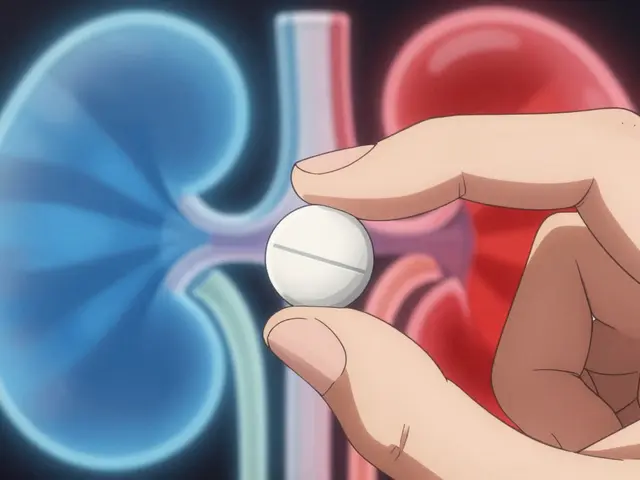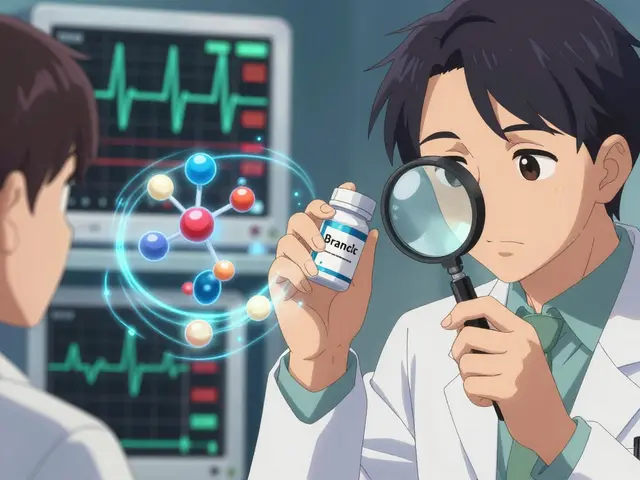Inflammation: Practical Guide to Causes, Treatments & What Works
Got swelling, pain or redness and not sure what to do? Inflammation is your body's alarm system. Sometimes it's helpful — like when you cut your hand — and other times it sticks around and messes with your life. Here’s a clear, useful guide so you know what works and when to see help.
What inflammation looks like and why it happens
Inflammation shows as heat, redness, swelling, pain or loss of function. Short-term (acute) inflammation follows injuries or infections. Chronic inflammation lasts weeks or months and often comes from autoimmune disease, ongoing infections, or lifestyle factors like poor diet and stress.
Common causes you’ll see on this site: bacterial infections that need antibiotics (articles on Cipro and Nitrofurantoin alternatives), autoimmune meds like azathioprine for long-term immune control, and skin treatments such as isotretinoin for acne where inflammation plays a big role.
What you can try right now
For mild, short-term inflammation try RICE for injuries (rest, ice, compression, elevation). Over-the-counter NSAIDs — ibuprofen or naproxen — reduce swelling and pain, but use them short-term and follow dosing advice. Topical anti-inflammatories (gels, creams) can help joint or muscle pain with fewer system effects.
If antibiotics are in play, pick the right one. For UTIs, nitrofurantoin is common but not always right; our Nitrofurantoin alternatives article lists options. For other infections, articles like the Cipro guide explain when stronger antibiotics make sense and what risks to watch for.
Probiotics can reduce antibiotic-related gut issues. Check our Best Probiotics for Antibiotic Side Effects piece to learn strains and timing that actually help when antibiotics upset your gut.
Supplements with anti-inflammatory effects: bromelain (from pineapple) and inosine show promise for reducing soreness and aiding recovery. Read the Bromelain and Inosine posts to learn doses, benefits, and safety notes. Don’t assume 'natural' means harmless — tell your doctor if you take supplements, especially with blood thinners or surgery coming up.
For chronic immune-driven inflammation, doctors may use immunosuppressants like azathioprine. Our azathioprine cost and insurance guide explains what to expect financially and how to get support if the drug is prescribed.
Lifestyle changes matter. Cut added sugars, move daily (even short walks), prioritize sleep, lose excess weight, and manage stress. These actions lower baseline inflammation and improve how you respond to treatments.
Red flags: high fever, spreading redness, sudden severe pain, joint locking, or inflammation that won’t improve after a week or two. Also seek care for any signs of infection after surgery or a bite. Those situations need a clinician fast.
Want more? Browse our related posts — from antibiotics and acne meds to supplements and autoimmune treatments — to get specific, practical steps for the kind of inflammation you’re dealing with. If you’re unsure, call a healthcare provider and explain your symptoms; they’ll help pick the right test or treatment.

How Stress and Cortisol Influence Cancer Growth and Tumor Spread
Chronic stress isn’t just bad for your mood—it can actually play a big part in how fast cancer grows and spreads. This article looks at cortisol, the body’s main stress hormone, and its connection to inflammation and tumor development. Learn why your body’s stress response matters, how it can fuel cancer, and practical tips to manage stress for better health. If you or someone you know is dealing with cancer, understanding this mind-body link could make a real difference.

Angioedema and Your Immune System: What's the Connection?
As a blogger, I've recently delved into the topic of angioedema and its connection to our immune system. Angioedema is a condition characterized by the rapid swelling of the skin's deep layers, which can be uncomfortable and even life-threatening. This often occurs due to an immune system overreaction, releasing histamines that cause inflammation. It's essential to understand the triggers for angioedema, such as allergies, medications, or even genetic factors, and take preventive measures to keep our immune system in check. Stay tuned for more updates on this topic, as I explore the various treatment options and ways to strengthen our immune system against angioedema.




